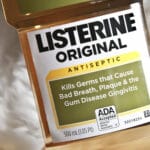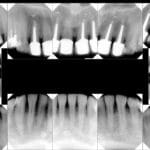Ever feel a rhythmic thump in your tooth? That pulsing sensation, like a tiny drumbeat inside your mouth, can be incredibly distracting and worrisome. This guide will help you decode that throbbing tooth pain, understand its causes, find temporary relief, and know when it’s crucial to see a dentist.
Decoding the Throb: What’s Causing That Pulsating Toothache?
That throbbing ache isn’t just random; it’s a signal from your tooth that something needs attention. While it can be alarming, it doesn’t always mean a serious problem. Let’s explore some common culprits:
Common Causes of Tooth Pulsing
Tooth Decay (Cavities): As tooth decay progresses, bacteria burrow deeper, eventually irritating the sensitive nerve within your tooth. This can cause a throbbing pain, especially when exposed to hot, cold, or sweet stimuli. Learn more about the link between allergies and swollen lymph nodes on our will allergies cause lymph nodes to swell page.
Tooth Abscess: An abscess is a pocket of pus that develops at the root of a tooth, usually due to an untreated cavity. The pressure and infection in the abscess can cause intense, throbbing pain that may radiate to your jaw or ear.
Fractured Tooth: Even a tiny, unseen crack in your tooth can expose the inner layers containing nerves and blood vessels, leading to throbbing pain, particularly when biting or chewing.
Gum Infection (Gingivitis/Periodontitis): Inflammation and infection of the gums can irritate the surrounding tooth roots, causing a throbbing sensation that can sometimes be mistaken for a toothache.
Sinus Infection: Pressure from infected sinuses, especially in the upper teeth, can sometimes cause referred pain that feels like a throbbing toothache.
Less Common Culprits
While the causes above are most likely, there are other possibilities:
Impacted Tooth (Often Wisdom Teeth): A tooth struggling to erupt can press against neighboring teeth and nerves, causing throbbing discomfort.
Teeth Grinding (Bruxism): Clenching or grinding your teeth, often unconsciously during sleep, can put excessive pressure on your teeth, leading to nerve irritation and throbbing pain.
Referred Pain: Sometimes, pain from another area, like your jaw or ear, can be felt in your teeth, mimicking a throbbing toothache.
Taming the Throbbing: Finding Relief at Home
While seeing a dentist is essential for diagnosing and treating the underlying problem, these home remedies can provide temporary relief:
Saltwater Rinse: Dissolve half a teaspoon of salt in a warm glass of water and swish it around your mouth for 30 seconds. This can soothe irritated tissues and may help reduce inflammation.
Cold Compress: Apply a cold pack wrapped in a thin towel to your cheek for 20 minutes on, 20 minutes off. The cold can help numb the area and reduce swelling.
Over-the-Counter Pain Relief: Ibuprofen (Advil, Motrin) or acetaminophen (Tylenol) can help manage the pain. Never apply aspirin directly to your gums, as it can irritate the tissue.
Avoid Triggers: Stay away from extremely hot or cold foods and drinks, as well as sugary or acidic foods, which can exacerbate tooth sensitivity and pain.
When to Seek Professional Help: Don’t Delay!
Home remedies are only temporary. A throbbing toothache warrants a visit to the dentist. Seek immediate care if you experience:
- Severe, unrelenting pain
- Fever
- Swelling in your face or gums
- Difficulty swallowing or breathing
- Pus or redness around the affected tooth
- Pain lasting longer than two days
Preventing Future Throbbing: Proactive Steps for a Healthy Smile
The best defense against a throbbing toothache is prevention:
Brush and Floss Regularly: Twice daily brushing with fluoride toothpaste and daily flossing are essential for removing plaque and food particles.
Regular Dental Checkups: Professional cleanings and checkups every six months can catch potential problems early before they become painful.
Healthy Diet: Limit sugary and acidic foods and drinks.
Consider a Night Guard: If you grind your teeth, a custom-fitted night guard can protect your teeth from damage and prevent pain.
Tooth Throbbing Without Pain: What Does it Mean?
Sometimes, you might feel a pulsing sensation in your tooth without any actual pain. Although this can be less alarming than a painful throb, it shouldn’t be ignored. It might suggest increased blood flow to the area perhaps due to minor irritation, or it could be an early sign of a developing problem. A dental checkup is recommended to rule out any underlying issues.
The Connection Between Oral and Overall Health
Emerging research suggests a link between oral health and overall health, although more study is needed. Some theories propose that inflammation in the mouth, like that associated with gum disease, might contribute to inflammation elsewhere in the body. This underscores the importance of maintaining good oral hygiene as part of a healthy lifestyle.
By understanding the potential causes of a pulsing toothache, taking proactive steps for at-home relief, and knowing when to seek professional help, you can keep your smile healthy and pain-free. Don’t let a throbbing toothache dictate your comfort – take control of your oral health!
- Discover Long Black Pepper: Flavor & Health Benefits - April 25, 2025
- Shocking Twists: The Grownup Review: Unreliable Narration - April 25, 2025
- A Quiet Place Book vs Movie: A Deep Dive - April 25, 2025















